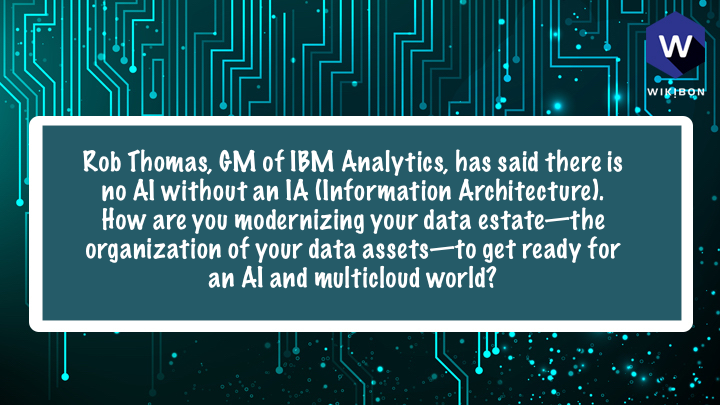How is your enterprise modernizing your data and integration architecture to accommodate a growing mix of clouds, SaaS, and traditional data sources on and off premises? https://www.crowdchat.net/s/45sdy

Peter McCaffrey
by evolving to an "Agile Integration Architecture" that rethinks people, process, and technology. Learn more : https://www.ibm.com/cloud/integration

IBM Cloud Integration
Learn how IBM Cloud Integration — including cloud integration services, hybrid cloud integration and cloud data integration — help you access and use critical data with API, application, message and data integration.
Learn how IBM Cloud Integration — including cloud integration services, hybrid cloud integration and cloud data integration — help you access and use critical data with API, application, message and data integration.

David Floyer
The key is implementing an IA architecture that enables moving code to distributed data.
(edited)

Rachel Reinitz
guidance available modernizing data & data as a differentiator https://www.ibm.com/cloud/garage/architectures/dat...

Bill Lawton
I'm seeing many companies moving their ECM content into the public cloud as part of their modernization strategy. Check out the Business Automation Content Services on Cloud details in the Digital Business Automation sessions at Think.

Alex Forbes
There's another factor to consider here, the scores of real-time transactional government tax mandates that require the digitaltransformation of core financial solutions to keep up with the digitization of tax. Hence the first MarketScape on the topic released this week

Alex Forbes
...MarketScape on the topic this week.




























